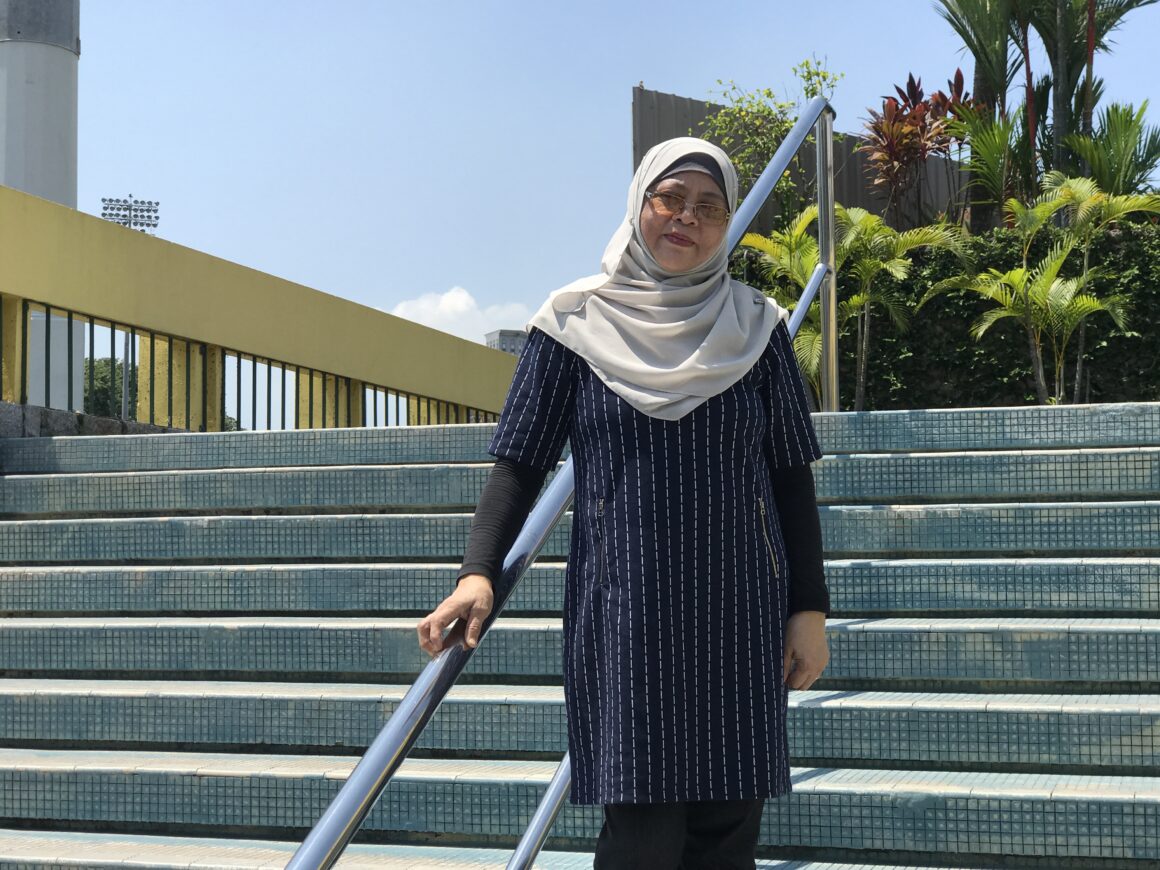When I was four months pregnant in 1995, I knew that my baby was going to be born with Down Syndrome. Nadhrah is my youngest of four children.
Before she was born, I sat my three older children down and told them they must never mistreat her. I reminded them to never bully her, or use profanities in front of her no matter how frustrated they are. I explained that she would learn from them, and as older siblings, they must set a good example.
Nadhrah was born two months premature by C-section and stayed two months in the intensive care unit. She looked so tiny when she was discharged and weighed only 2kg. I lived day by day with her. Her every little achievement was a big joy to me.
When she was two, I registered her in a playgroup without informing the teachers about her condition. I wasn’t ashamed of her. I did it because I didn’t want the others to treat her differently. I wanted her to integrate with the other children.
But it’s not been easy trying to fit in. I’ve had strangers approach me from behind, saying, “You have such a beautiful child.” But when they came closer and realized she has Down Syndrome, their expressions changed instantly. They looked as if they wanted to run away.
My other children have also had classmates asking them, “Is your sister retarded?” I told them, matter-of-factly, “Look at your sister. She can do everything that you can. Do you think she is retarded? I don’t think so.”
I have never been embarrassed by my child. I want to expose her to the world. I’m happy and proud to say she’s mine.
When Nadhrah was nine, I sent her for weekly bowling sessions with the Down Syndrome Association. Her progress was slow. In the first three years of training, her balls consistently ended up in the gutter. Even my husband questioned whether she had a talent for the sport and suggested to stop her training, but I said no. The point of Nadhrah engaging in sports is not to win medals, but to make friends and to learn focus and self-discipline. We must persist.
I also signed her up for private swimming classes. In the beginning, she was terrified of the water and struggled to follow the instructions of the coach. I resorted to demonstrating the strokes to her even at home, during bath time and before bed. I would literally be squatting and jumping repeatedly, to demonstrate the breaststroke kick and to help her absorb what her coach had taught her. We would have a good laugh after.
I would also take her to the pool 30 minutes before her class so that she would have time to warm up and practise. I encouraged her constantly to fight her fear if she wanted to swim like her siblings. We tried to create games, such as retrieving items from the bottom of the pool, to help her learn.
It has taken years for her to perfect the breaststroke. To me, it didn’t matter how long she took. I wanted her to learn at her own pace. As parents, we must play an active part in encouraging our children and helping in their development. The responsibility does not lie entirely with the coach. It takes a village, and we must work in tandem with coaches to bring out the best in our children.
When Nadhrah was 15, she was chosen to represent Singapore at the Special Olympics World Summer Games in Athens. She brought home a silver medal in bowling. It was a huge achievement for her and such a joy for the family.
Since then, she has continued with the bowling as well as swimming training with Special Olympics. No matter how tired she is, she insists on going for training because it’s when she meets her friends. The team has great camaraderie. They’re like her extended family.
Nadhrah also enjoys a good rapport with her current swim coach, Coach JC. He’s given her the confidence to venture out of her comfort zone to try other styles. She can now swim the freestyle and has even tried the butterfly stroke.
There are some who think that people with intellectual disabilities are unable to lead meaningful and active lives. But just look at Nadhrah. Her weekly schedule is packed. She works alternate days at a fast-food chain. In between, she attends courses in flower arrangement, speech and drama, sports training, and religious classes.
I’m a full-time homemaker, but Nadhrah has inspired me to give back to the community and lead an active life as well. I volunteer with the Special Olympics family support network, and I’m also part of her former school’s caregiver support network.
Many people do not realize what children with intellectual disabilities are capable of. Often, when we go bowling as a family, people are surprised when Nadhrah throws a strike. So don’t look down on our children, and don’t give up on them. All we need to do as a society is to have patience and the right mindset to allow people with disabilities to reach their potential, at their own pace. They will achieve a miracle.

